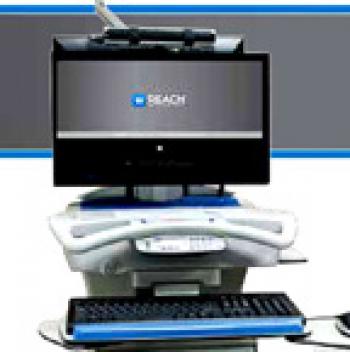
Teche Regional Medical Center implements stroke telemedicine program
Stroke patients at Teche Regional Medical Center now have immediate access to highly specialized vascular neurologists as the result of a partnership between Teche Regional and Ochsner Clinic Foundation in New Orleans, a news release from Teche Regional Medical Center stated.
Through this network, Teche Regional’s emergency department physicians have the ability to consult immediately with Ochsner vascular neurologists 24 hours a day, seven days a week, 365 days a year using telemedicine equipment to determine the best treatment options for stroke patients.
Butch Frazier, Teche Regional’s chief executive officer, said, “Having this state-of-the-art equipment is very beneficial for our patients and our physicians.”
Frazier also said, “Our goal is to keep people at home for their health care needs and with coverage provided 24 hours a day, 7 days a week, this equipment will help us to do just that.”
Telemedicine programs improve the quality of care for patients by allowing them access to specialists and by reducing the costs associated with travel and the time spent away from work and family.
Liz Cothren, director of telemedicine at Ochsner, said, “With the push of a button, within seconds of getting on an Internet browser, you’re able to interact with a physician.”
Ischemic stroke is caused by a blockage in a blood vessel that stops the flow of blood to the brain and deprives the surrounding brain tissue of oxygen, the news release stated. In the absence of oxygen, the brain cells in the immediate area begin to die, causing permanent brain damage, disability or death. Two million brain cells die every minute during a stroke, so immediate medical attention can save a life and limit disabilities.
When a patient comes into the emergency department at Teche Regional Medical Center with the symptoms of an acute ischemic stroke, a computer with an advanced webcam will be brought to the bedside where the clinical team will connect with a vascular neurologist on call at Ochsner. The neurologist, patient and clinical team at Teche Regional Medical Center can see and speak to each other throughout the consult. The physician will examine the patient and review the CAT scan of the patient’s head, providing guidance on advanced treatments within minutes.
If you think someone may be having a stroke, act F.A.S.T.:
• Face: Ask the person to smile. Does one side of the face droop?
• Arm: Ask the person to raise both arms. Does one arm drift downward?
• Speech: Ask the person to repeat a simple phrase. Does the speech sound slurred or strange?
• Time: Time is critical to protecting brain damage. If you observe any of these signs, call 911 immediately
In many cases, Telestroke consultation will allow patients to stay at Teche Regional. In more complicated cases the patient may need to be transferred to Ochsner or another facility for specialized treatment. Telestroke is still beneficial in these cases because the neurologist will have already met and started treatment the patient.
For more information, visit www.techeregional.com or call 985-384-2200.
- Log in to post comments
